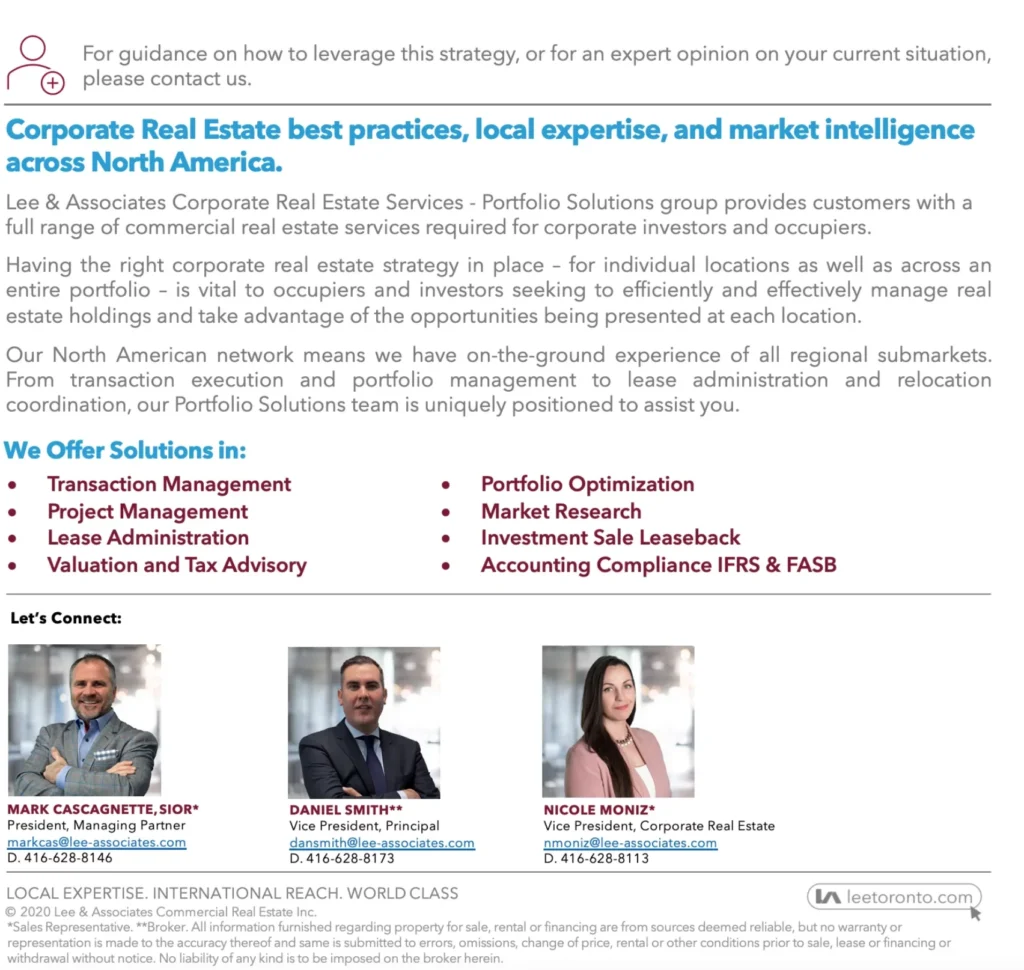DEFINING THE TERMS OF THE NEGOTIATION AND FOCUSING DISCUSSIONS TO YOUR BENEFIT
January 14, 2021

Five Common Lease Renewal Pitfalls During Negotiation
If your term is about to expire and you think renewing is as simple as calling your landlord and extending your current terms and rate, then you may want to read on because we’ve got some news for you. The truth is, negotiating a lease may put you in a costly trap, whether you try to do it yourself or hire a professional.
A renewal may represent an opportunity to:
- Save Money
- Modify Key Lease Terms
- Make Facility Upgrades
- Improve Business Performance
However, when negotiating without knowledgeable and professional representation, this opportunity is often lost.
This is because many parts of the process are not widely known to tenants (or even brokers), but rather, they come from the experience of dealing with landlords on a weekly, or even daily, basis. And if you fail to get it right, you may be stuck with your situation for 5 or 10 years, or maybe longer. This is something we’ve seen when approached by businesses looking for help because they can’t afford to make the same mistake twice.
From inadequate requirements, compromising to meet deadlines, stressing over uncertainty, or getting locked into overpaying… the space you occupy should be the least of your operational worries.
We’ve seen Five Common Costly Mistakes that tenants and users make when renewing their leases, and while you may not be able to execute on these items in real-time in a boardroom (and we wouldn’t recommend going without a broker who is a leasing specialist) you should at least be aware of them.
Taken individually, they may only have minor impacts on the transaction. However, a combination of many (or all) of them can spell disaster to the end result.
Today, let’s examine one of the five common issues we see Tenants face during the lease renewal process.
Major Pitfall #3: Undervaluing Landlord’s Risk
Who Has More to Lose… You or Your Landlord?
When selling anything, identifying your prospects’ pains and positioning your product as a solution to them creates demand and a willingness to pay.
Landlords know this. They are extremely sophisticated and experienced when it comes to dealing with Tenants to ensure their portfolios are as fully leased as possible.
They may shine light on the fact that moving is expensive, such as the hard costs of transporting equipment and machinery, relocating your workforce, and refitting your new space. They may also discuss the risks associated with waiting, especially in a tight market with limited availabilities.
Then there are soft costs that come from loss of productivity, interruption of operations, and an overall slowdown in momentum in your business.
When a Landlord positions a quick renewal as a way to avoid all of those problems, their implication is that if you don’t accept their terms that they will not renew. That is not always the case, or at least, it is not always that simple.
See, Landlords cannot always afford to have you relocate. A terminated or expired lease means hard and soft costs for them as well; something that many Tenants fail to remember. Lost income streams, as well as the cost of marketing and advertising their space to find a new Tenant are two obvious drawbacks. Prolonged vacancies can add up to millions in expenses and lost revenue.
Further, Landlords have to consider their debt service, operating expenses, taxes, and being in a position with less leverage. In order to induce a new occupier to settling into a vacant space, they may have to give up concessions in free rent, tenant improvement allowances, or terms… things they might have told you they would not be willing to do. Depending on the asset class and market, these costs may have risen dramatically as we navigate through uncertainty.
Bottom line: both Parties typically have skin in the game.
And so, being aware of these things is the first step in gaining leverage when negotiating your renewal. Understanding what is at stake for those sitting at the other end of the table is something that an experienced leasing specialist and tenant representative can help you with.
Summary
Overall, Tenants and Landlords of commercial space are constantly looking for opportunities to minimize costs and risks associated with their real estate footprints and portfolios.
A lease renewal is a part of any Tenant’s experience as an occupier of commercial space. Aside from purchasing space or relocating, there is little chance of avoiding it. The good news is, the process can be done proactively and leveraged strategically to gain an edge at the negotiating table. Competitive rents, favourable terms, and even concessions – such as Tenant Improvements – are all items which can be pursued and which may be obtained.

